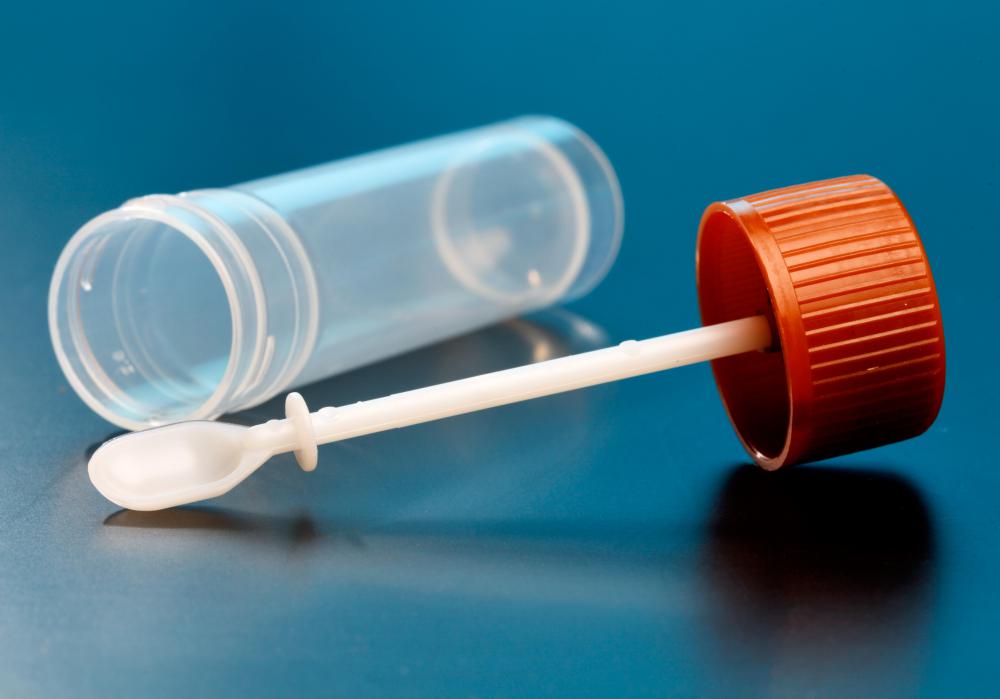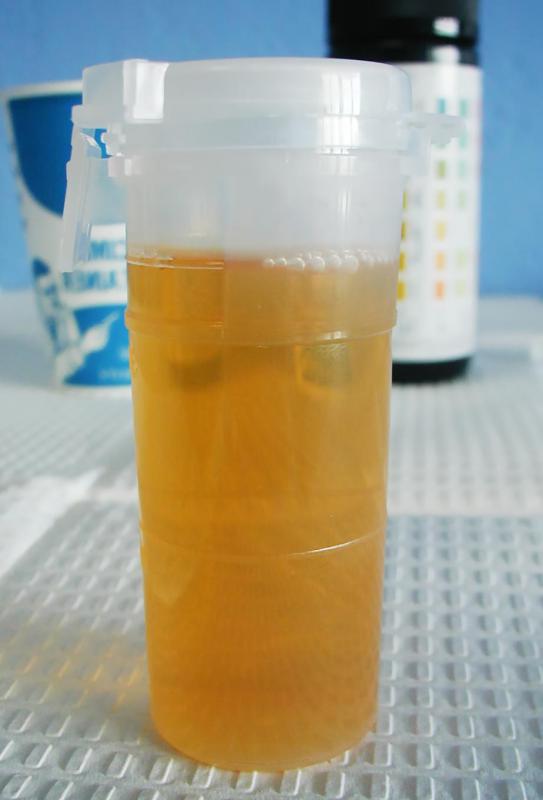At TheHealthBoard, we're committed to delivering accurate, trustworthy information. Our expert-authored content is rigorously fact-checked and sourced from credible authorities. Discover how we uphold the highest standards in providing you with reliable knowledge.
What is Acute Gastritis?
Acute gastritis is a medical condition that happens when the lining of the stomach becomes inflamed and causes a sharp burning ache or pain in the sufferer’s upper abdomen. It usually has to occur suddenly and without warning in order for it to be considered “acute.” Healthy people normally have a thick mucus lining in their stomachs that protects the organ wall from the harsh acids used to help break food down for digestion. Gastritis happens when this lining either wears away or becomes weakened, and it is usually quite painful. In most cases it’s also very treatable, but treatment almost always begins with a determination of the cause. Many medications can cause mucus erosion, as can certain lifestyle choices like smoking or heavy alcohol consumption. It’s sometimes also a natural consequence of aging. Sometimes simple antacids or other over-the-counter remedies can bring relief, but in more serious cases medical intervention may be required.
Understanding Stomach Chemistry

The human stomach plays a very important role in the digestive process, but it depends on a delicate balance of acids and other substances in order to do its job properly. Food usually starts breaking down in the mouth with the chemicals in saliva. The stomach takes it a step further by churning foodstuffs and isolating their core components. This isn’t an easy task, and requires a lot of different acids and compounds — many of which are somewhat abrasive and harsh.

A person’s diet can sometimes upset the balance, as can different substance and compounds that enter into the stomach cavity. The inner wall of the stomach is lined with a thick layer of mucus that protects against erosion, but when the proportions are disrupted this layer can stop being as effective. When the acids and other stomach contents make contact with the raw organ wall, people often feel a sharp, stabbing pain. This problem is known medically as gastritis.
Gastritis Basics

In general, there are three separate forms of gastritis. The acute version usually happens very suddenly, often in response to a specific food or compound. It will normally go away on its own once the offending agent has been digested and passed out of the body. A condition that is “sub-acute” has a longer lifespan and may have be ongoing for some time; it’s often caused by a number of different things. When the condition is or chronic, it is usually thought to be of indefinite duration and may have almost no change over time.
Main Symptoms

Sharp pain is usually the first thing people notice when acute gastritis sets in. Nausea and vomiting are common, too, as is a feeling of bloating or abdominal tightness. Indigestion and a burning feeling between meals has also been reported by a number of patients, along with black, tarry stools.
Role of Anti-Inflammatory Drugs
There are a number of different things that can cause acute gastritis, but medications and drugs are some of the most common in part because of how quickly they are absorbed into the bloodstream. The regular use of non-steroidal anti-inflammatory drugs such as aspirin and ibuprofen is one of the most frequently cited culprits. While these pain relievers are generally safe for occasional use, taking them on a daily basis can cause an erosion of the protective mucus-lined barrier.
Lifestyle Factors

Severe stress and smoking are also contributing factors, and heavy, sustained alcohol consumption is frequently also included as a cause. These activities can cause the normally harmless bacterium helicobacter pylori — which occurs naturally in the stomach — to attack the stomach’s protective coating. An infection arising from helicobacter pylori is the most likely reason for a gastritis diagnosis.
As a Consequence of Aging

The condition could also simply be a consequence of getting older. As human beings age, they naturally experience a thinning of the lining of the stomach, which makes them more susceptible to a helicobacter pylori infection and certain autoimmune disorders. People in this category who have a lot of stress in their lives, who smoke, or who drink heavily are usually particularly at risk.
Diagnosis and Treatment

Diagnosis isn’t always easy, since in many cases the initial symptoms mimic those of standard indigestion or temporary stomach upset. Healthcare providers usually make their diagnoses based on several different tests, including blood tests, urinalysis, X-rays, stomach biopsy, endoscopy, and stool sample.
The treatment options are many, and choosing the best one usually depends a lot on how severe the sufferer’s symptoms are and whether there are any other competing health issues to deal with. Mild gastritis can often be treated with an over-the-counter antacid in tablet or liquid form. Antacids are meant to neutralize the stomach acids that cause pain and provide immediate relief. If over-the-counter medications are ineffective, certain prescription medications can help to limit the amount of acid the stomach produces.

The most effective medications to limit or cease stomach acid production are known as proton pump inhibitors. The body's proton pump is responsible for releasing acids from acid-secreting stomach cells, but inhibitors — as the name suggests — prevent this from happening. If acute gastritis is the result of a helicobacter pylori infection, many doctors will utilize a combination of drugs, typically antibiotics and a proton pump inhibitor.
AS FEATURED ON:
AS FEATURED ON:


















Discuss this Article
Post your comments